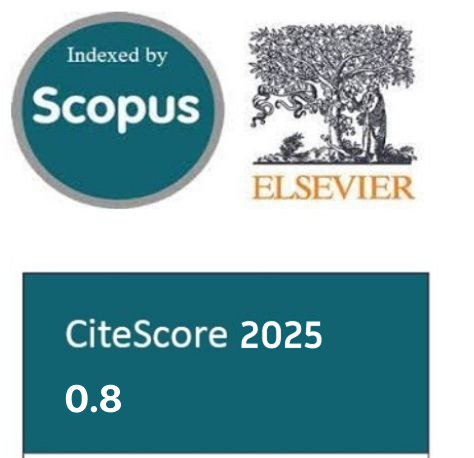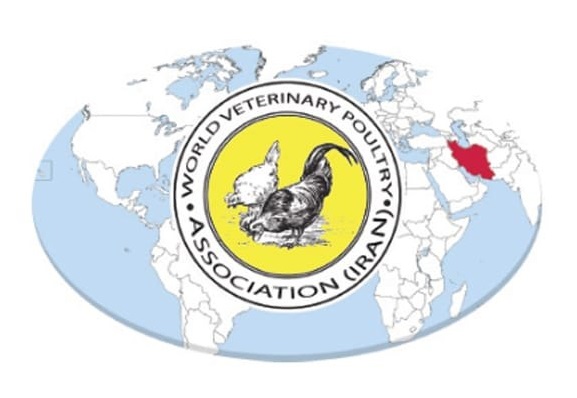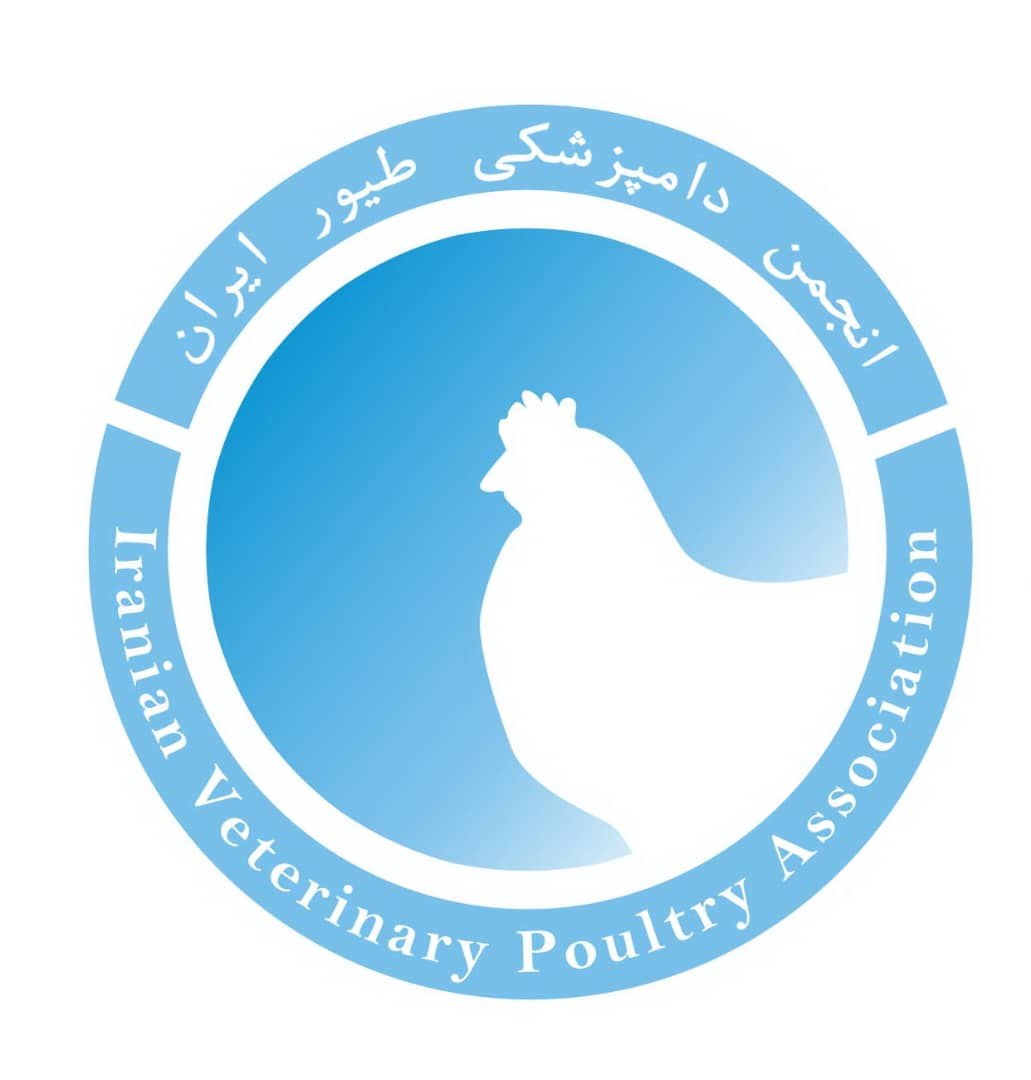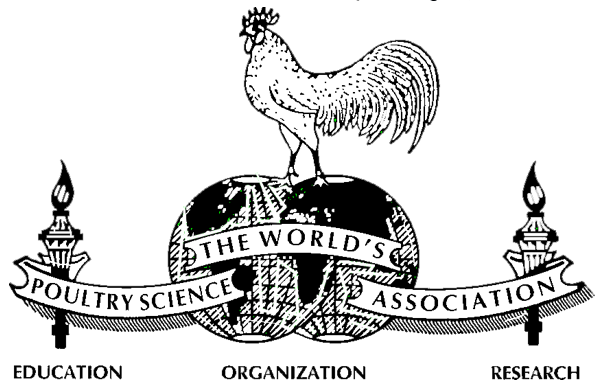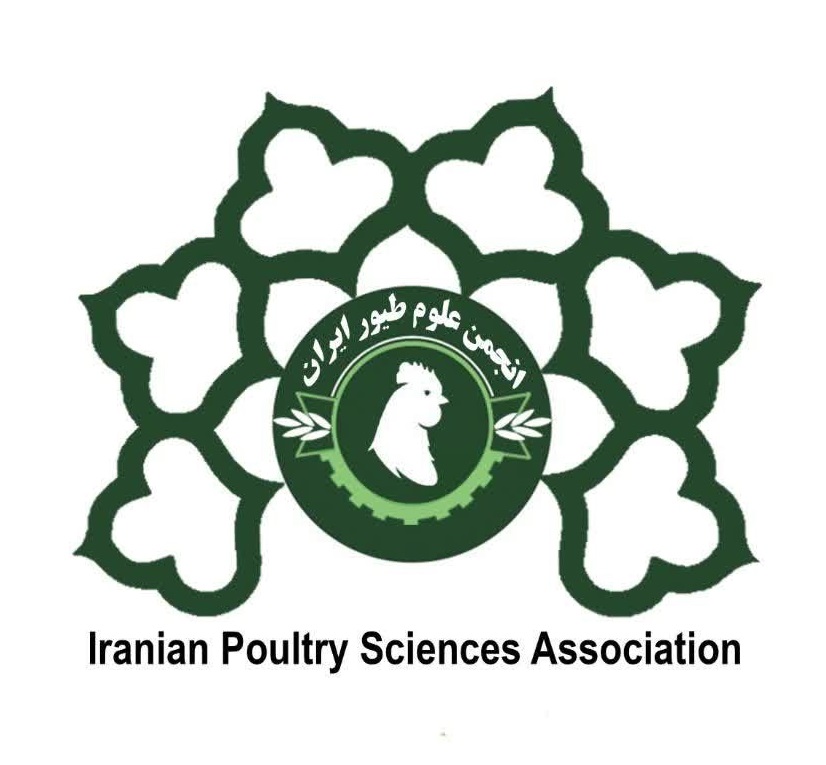Molecular and Biochemical Characterization of Pseudomonas aeruginosa Isolated from a Turkey Flock
Keywords:
Pseudomonas aeruginosa; Iran; Turkey Poult; PCR; Microbial Culture; Antimicrobial resistanceAbstract
Pseudomonas aeruginosa is a Gram-negative, aerobic, mostly motile, non-spore-forming, catalase-positive bacterium responsible for nosocomial infections, food and waterborne diseases in the human population, and infection of different organs in avian species. Because of the emergence of multidrug-resistant isolates in recent years, the occurrence of infection in pet avian species or poultry can lead to severe infection in the human population. This study reports an infection in turkey poults related to Pseudomonas aeruginosa. Overall, eight 4-day-old dead turkey chicks were presented to SANA Avian Hospital to diagnose the cause of death. For this purpose after necropsy, liver and bone marrow were sampled and cultured on blood agar. Then other complementary biochemical tests were performed to achieve a primary diagnosis. After the primary diagnosis of Pseudomonas aeruginosa infection, at the next step, PCR was used for definitive diagnosis and evaluation of virulence factors. Finally, the agar disk diffusion method determined antimicrobial resistance to some common medications, and results were interpreted by Clinical and Laboratory Standards Institute guidelines.
Downloads
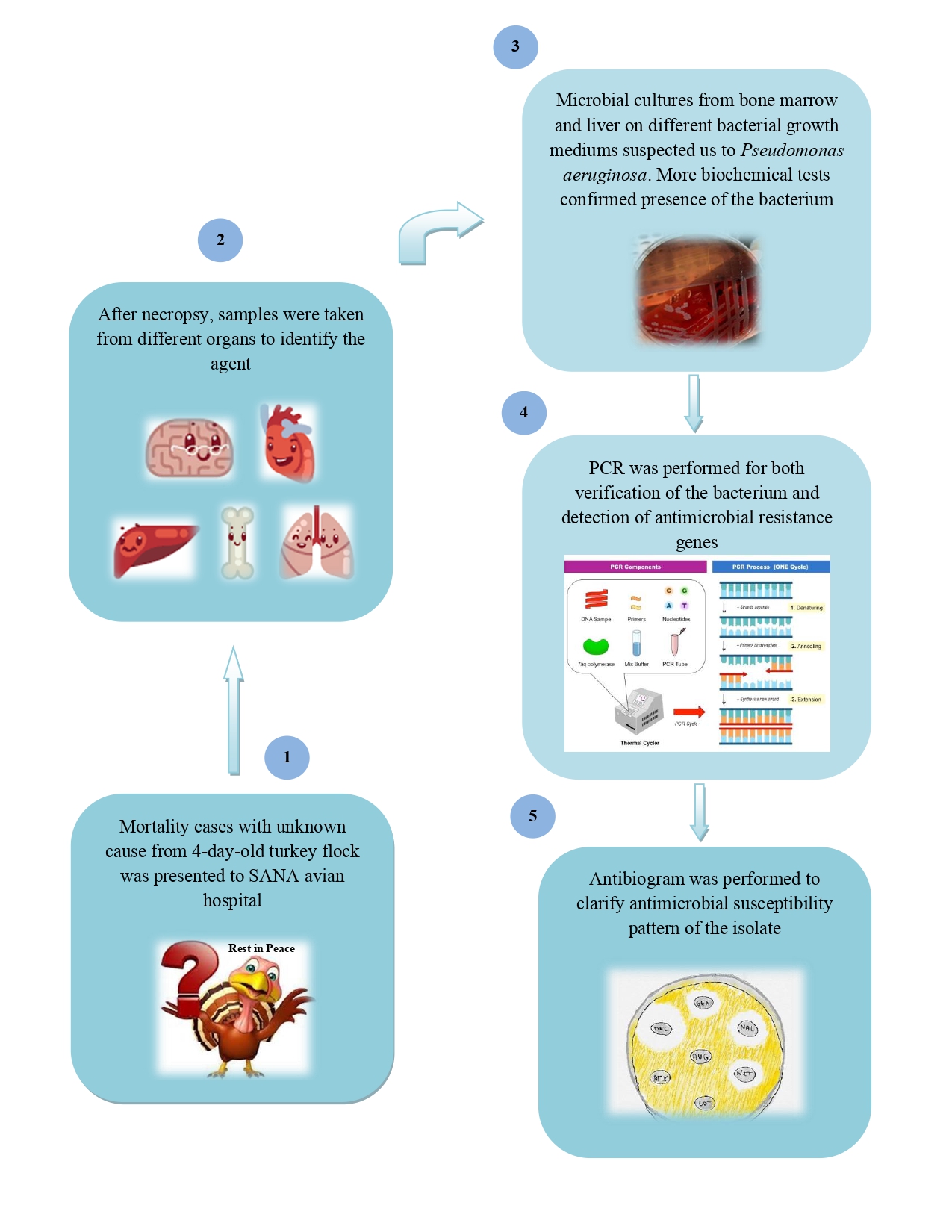
Downloads
Published
Issue
Section
License

This work is licensed under a Creative Commons Attribution-NonCommercial 4.0 International License.


